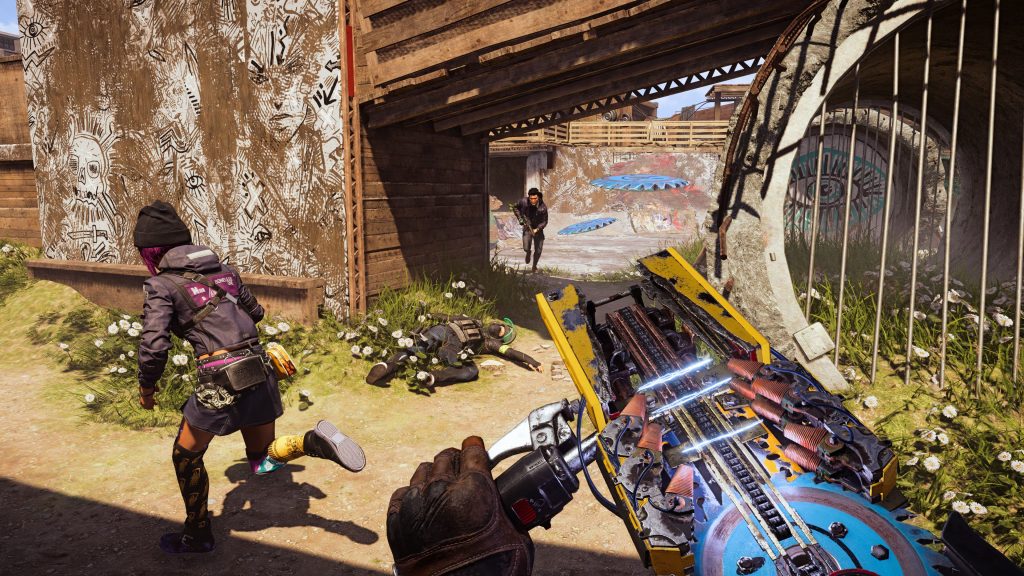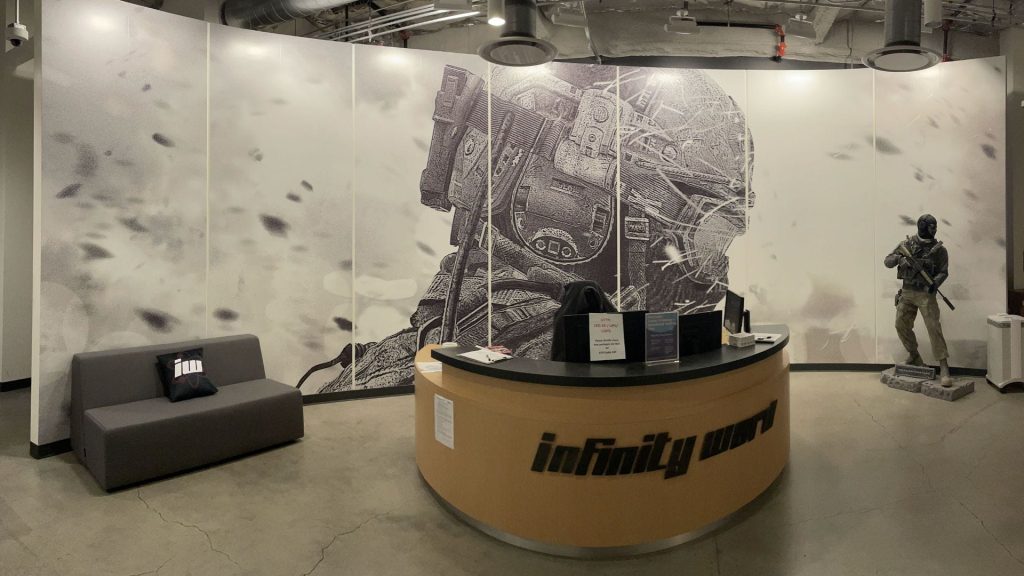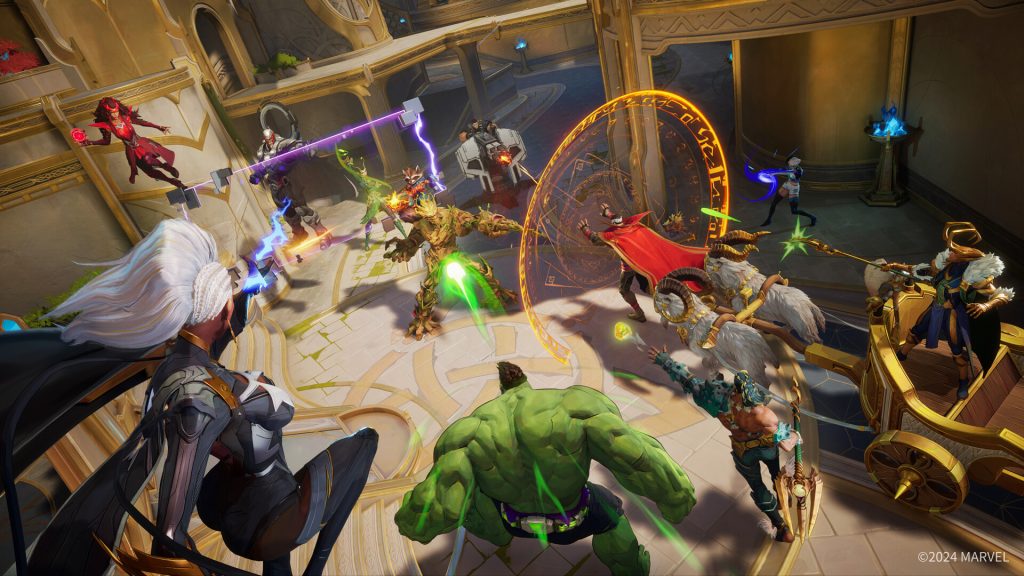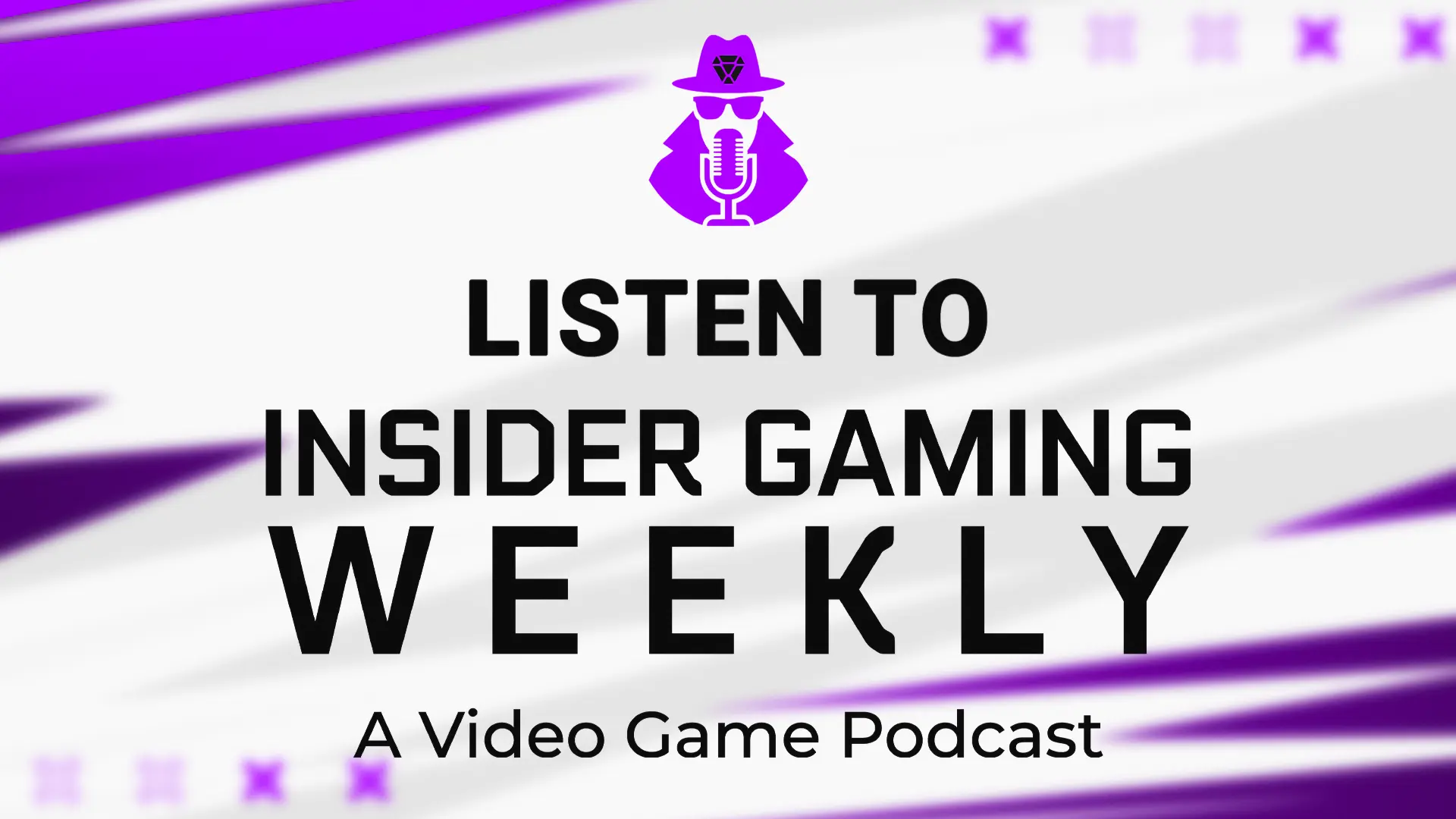Earlier this month, I attended the 2025 D.I.C.E (Design, Innovate, Communicate, Entertain) Summit, an annual event that see’s industry executives and leaders across the globe converge into one location to discuss the future of video games. It was an eye-opening event and I walked away with a sense that the industry has got a renewed sense of optimism, with the past few turbulent years catalysing a reinvention of creativity and technology that will undoubtedly lead to an exciting future.
One of my favourite conversations at the event, though, was on the four letters that strike fear in any good player who plays multiplayer games; SBMM. For those who don’t know, I started off this unorthodox journey into journalism as a Call of Duty YouTuber, who thrived and gained a following by uploading high-kill, low-death gameplay with the occasional commentary about how the next game leaked on the back of a Doritos packet. Finding ways to get around SBMM was always a part of my gaming routine and when I had the opportunity to speak with Charlie Olson, a veteran software programmer who spent nearly a decade at Raven Software in two stints, and wrote the Matchmaking Rating algorithm (MMR) for Call of Duty’s SBMM system, it was an offer I couldn’t refuse.
Olson initially wrote the MMR algorithm for China’s Call of Duty: Online in 2015, with the algorithm making its way into its first mainline entry with 2016’s Infinite Warfare. It’s a system that has been there ever since, with the matchmaker itself becoming more sophisticated over the years, but Olson’s rating algorithm remaining essentially unchanged. Olson would move on from Raven Software in 2020, going on to co-found Invokation Games in 2022; a development studio that provides custom skill-rating and ranking systems to games.
After a handshake, a brief introduction, and a joke or two, we sat down to talk the nitty gritty about SBMM, how important it is for live-service games, and whether or not there’s any solutions for players in higher-skilled brackets. But one thing seems for certain; SBMM is not going away in Call of Duty, and arguably, any other live-service game that wants to be successful.

But first, I wanted to address the elephant in the room when it came to Call of Duty’s SBMM whitepaper and its legitimacy, because as we all know, there’s always a sense of doubt when a giant company tries to be transparent. When asked, Olson told me that the whitepaper is accurate and he can attest to it based on his own analysis at Call of Duty and on other games. Live-service games need SBMM, and SBMM needs MMR, he said. He continued to explain that both are needed to ensure long-term sustainability and player engagement, which are both crucial components in ensuring a successful live-service game. “But that doesn’t mean everyone should just shut up and like SBMM,” said Olson.
On stats, Olson explained that around half of players would be driven to stop playing without SBMM, because the “sometimes you stomp, sometimes you get stomped” narrative only applies to around 40% of players by skill, with 10% of the very top players doing 90% of the pubstomping. Olson used XDefiant as an example of churn-based matchmaking and explained that although XDefiant had team-balancing, “people don’t like being the weak link repeatedly and high-skill players don’t like carrying a team of potatoes all the time.”

When asked for a solution to SBMM, Olson believes that it is needed to ensure long-term sustainability for a live-service game, however thinks that its solution is transparency of where players rank with their skill. “The massive problem with SBMM though is that you don’t know what league you’re in anymore. SBMM takes away the sense of skill and mastery. There’s less skill feedback, stats don’t matter as much, KD is less of a bragging right; it’s a serious design problem really.”
He continued, “If you are trying to get better at the game, SBMM just rewards you with tougher opponents. I’d even say that SBMM punishes players for being good. That’s unfair, and players are right to complain about it.”
Olson thinks one solution is to reward players with more XP for being better at the game. “Casual doesn’t need to be completely about skill like Ranked , but you should be able to see something about the average skill of your lobby or opponents, like maybe this match is a gold tier so you get a 1.2 XP multiplier. You should be able to see your MMR (matchmaking-rating, aka skill-rating) in the combat record. You shouldn’t have to file a personal data request with Activision just to get that information.”
He went on to explain that he did pitch such a system for Call of Duty on multiple occasions, even at a meeting at Infinity Ward during 2019’s Modern Warfare development. However, Olson noted that the lack of bandwidth that studios have to consider new ideas outside of the lead studio make such pitches an up-hill battle, especially coming from a non-designer. “So, I tried, but it didn’t catch on,” he said. “The other reason I think it didn’t catch on is that most designers just don’t know much about how MMR works and therefore aren’t comfortable using it as a component for design,” he continued.

I asked Olson to explain SBMM in a ‘for dummies’ explanation, to which he explained that SBMM consists of three different systems; matchmaking, team-balancing, and MMR (matchmaking-rating or skill-rating). MMR is the number that the matchmaker and team-balancer uses. The MMR system takes into consideration the ratings of everyone in the match and updates your rating based on your relative performance. In CoD, Olson said that that the MMR is more volatile in the mid-range, which is an issue that could be addressed. He said that CoD players who requested their data from Activision are likely seeing that volatility too, with their MMR bouncing around without a clear indicator as to why. But that’s why Olson believes that players should openly be able to see their MMR, for transparency and so they can see what’s going on. He noted that preventing people from seeing their MMR, or making you data request it from Activision leads to a lack of faith and ultimately leads to conspiracy theories that we often see flooding the internet.
“Contrary to what some players believe, you really don’t have to try your hardest every match. If you go off-META, your MMR will adapt after a few bad games, and matches will get easier. The exception would be when you’re playing low pop modes that attract high skill players, or during Open Betas,” he said. For example, you probably shouldn’t expect a gamemode like Domination, a gamemode that traditionally attracts higher-skilled players to get much easier. Speaking of conspiracy theories, Olson also pointed out that CoD’s SBMM gets mistaken for “EOMM” (Engagement-Optimized Matchmaking), but it’s really just because the MMR is highly responsive and volatile.

What’s clear is that SBMM in CoD (and other live-service games) is likely never going to go away. They are fundamental systems to keep a game alive and thriving by keeping players around and has become even more apparent recently following Activision’s clamp down on VPN’s and patching SBMM ‘get around’ methods like two boxing – a method where a player would join the session of a lower-skilled dummy account to enter a lower-skilled lobby. The issue with CoD in particular seems to be transparency and players should be rewarded for being good at the game. Be that XP bonuses as Olson suggested, or even going one step further and offering exclusive calling cards, emblems, and so on.
Finding a solution to appease everyone when it comes to SBMM is definitely a complex issue, but one that should be talked about more at length.
Insider Gaming has also invited Charlie Olson to the Insider Gaming podcast, to sit down and answer some of your questions at length on the issues.
So, if you have any questions, please visit the Insider Gaming Forum, create an account, and ask away. And fingers crossed, we’ll have Olson as a guest in the coming weeks.











this is exactly why i have left cod for eternity! because the garbage is broken, i continuously get punished, i cannot origin ranked play nor will this stupid game allow me to maintain a kd above 1.5. once i do it kicks me back down again, plus their servers are garbage and all around this sbmm is killing it not thriving sorry but this dude does not know what he is talking about nor does he care for the common gamers who made cod an icon
I feel your pain sam I am done with sbm and the shit servers, hackers/PC players etc I’ve played cod for 18 years I just stopped playing a mouth ago and it was the best decision I ever did. The only way to make the game fair and keep sbmm is to get rid of cross play but they won’t do that because then there PC players/streamers can’t shit on the so called bots smh